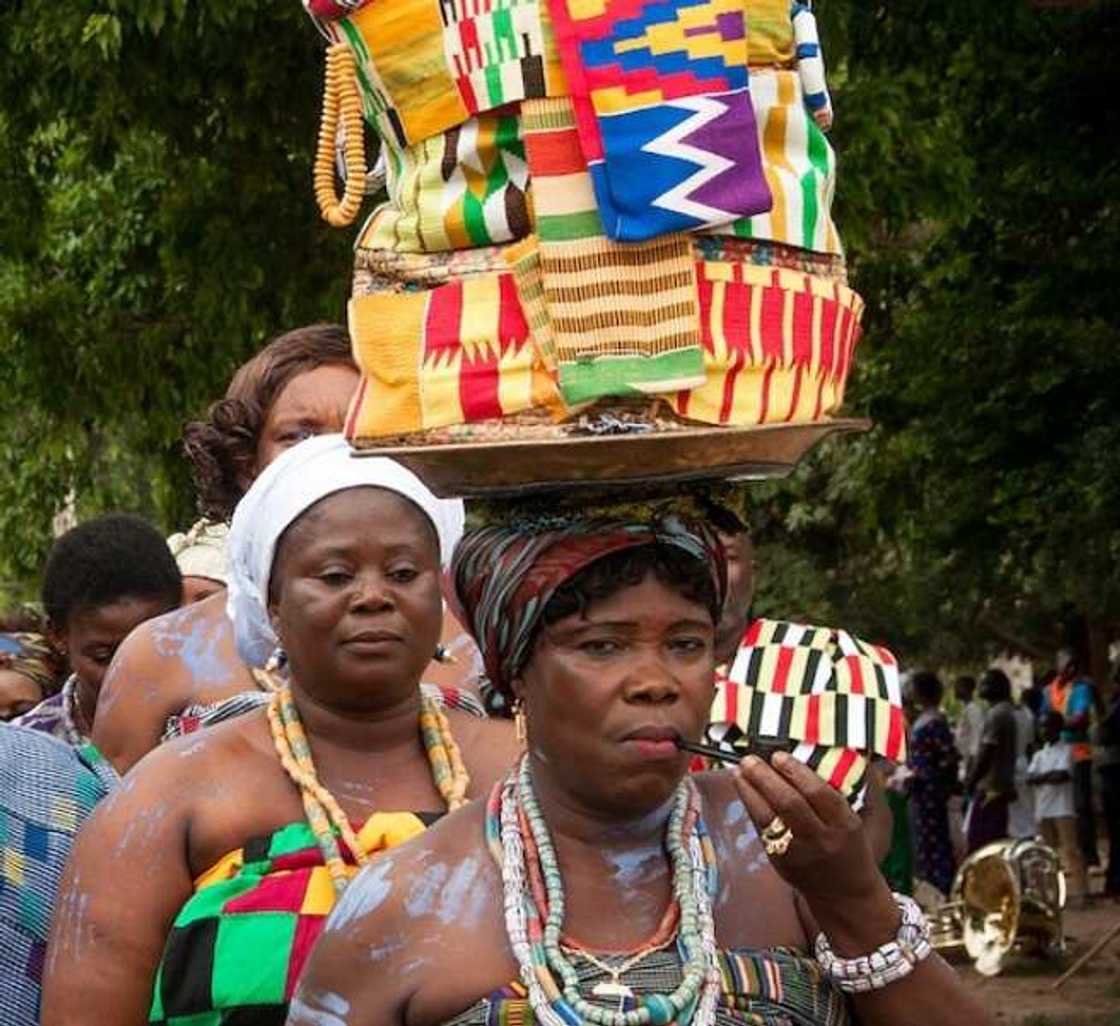Ewe: basic phrases and interesting facts
Ewe is a language that is dominantly used in communication in two countries on the African continent. These countries are Ghana and Togo. The language is prevalent in the two countries. Due to this, it has been adopted as the official languages of the two countries. The prevalence has made most people in other countries to acquire an interest in this style. Therefore, it is not surprising to come across an individual who is teaching himself or herself various phrases in Ewe. Stick around to learn interesting details about the origin and other aspects of this prominent style.

Source: Instagram
If you have always desired to know a phrase or two in Ewe, then you need to look no further. This piece has detailed how to say the most straightforward phrases such as I love you, and I miss you in this fascinating language.
Fascinating details about the Ewe style
- Ewe is a part of the Volta-Niger branch of Niger-Congo languages. An estimate of three million people speak the language. These individuals are situated in southwest Togo, the Volta Region which is in south-east Ghana, and also in various regions of Benin.
- Although most people may not know this, Ewe is regarded as a national language in Ghana, in a nation, the official communication style is English. It is also considered a national language in Togo, with French being its official language. In Ghana, Ewe is spoken as a first language by two million and two hundred and fifty thousand people. A half-million people also speak it as Ethnologue (a second language).
- Ewe is a tonal language and has four tones. One of them is a rising tone, which is marked by an acute accent (é). The second one is a falling tone that is identified by a grave accent (è). The third tone, however, comprises a falling-rising sound which is determined by a caron accent (ě). The last one entails a rising-falling emphasis that is identified by the circumflex accent (ê). However, it is essential to note that these tones are not always recognized.
- The Ewe community believes that their ancestors originated a town in Benin known as Ketu. Later on, they are believed to have migrated to the south-east side of Ghana. Although most people believe that the Ewe people are only in Ghana, the truth of the matter is that some are also situated in Togo.
- The Ewe style can also be referred to many other names. These are Ehwe, Ebwe, Gbe, Efe, Krepi, Eibe Vhe, Eve, Popo, Krepe, and Eue. The style is believed to be highly similar to specific Gbe languages, which include Aja, Fon, Phera, Phla, and Gen.
- A German missionary, named Diedrich Hermann Westermann published dictionaries and grammars in Ewe and various other related languages. Diedrich Hermann Westermann (1875-1956), the linguist, played a considerable role in developing the Vhe style. Other linguists have also worked on several aspects of Ewe.
- Vhe is the predominant style used in the southern part of Togo and is taught in primary schools. Individuals also use the style as a mean of communicating on various channels. These include the television, radio, and also newspapers. In Ghana, Vhe is also taught in secondary and primary schools. The style is also used as a style of communication in electronic and print media.
- Vhe has three distinct dialects. However, they do differ in terms of phonology. These dialects include:
- Central dialects that comprise of the Gẽ, Adya, and Watyi;
- Western dialects that are also known as the Ewe proper. They consist of the highland and Aŋlo varieties;
- Eastern dialects that comprise of the Maxi, Gẽ, and Fõ.

Source: Instagram
9. The syllables in the Ebwe style contain a vowel or a vowel and a consonant. However, you cannot have a syllable with a cluster of consonants in this style. The language has five nasal and seven oral vowels. Although this may sound hard, it is very effortless if one understands the vowels. Well, the five nasal vowels can be produced when one lowers their soft plate, which in turn allows the air to escape through their nose and mouth. You will know you create a perfect nasal vowel when you notice a tilde.
READ ALSO: Obinim facts that will have you shaking your head
Example of Ewe phrases
Take a look at how one can say the following terms in this incredible language:
- Welcome: it is pronounced as Woé zɔ (sg) or Miawoe zɔ (pl). To respond to this, an individual is expected to say Yooo
- If you wanted to ask someone ‘How are you?’ in this style, you would say ‘Ɛfoa?’ The individual whom you are asking about their state would then reply ‘Me fo. Wo ha ɛfoa?’
- To wish someone a nice day, all you have to say is Nkekea nenyo
Here are the phrases one can use when greeting a person in this language:
- Good morning greetings - Ŋdi na mi;
- Good afternoon greetings - Ŋdɔ na mi;
- Good evening greetings - Fiɛyi na mi.
Take a look at other phrases you can use in this incredible language:
- Safe journey - Hede nyuie;
- I understand - Se Eme, or Me se eme, or Me se egɔme;
- Please say that again - Meᶑekuku, ga gbloe ake;
- Excuse me - Kafla, or Medekuku;
- I love you - Me lↄ wo;
- I miss you - Me susu wo lo.
Indeed, Ewe phrases and facts are very interesting. Also, Ewe is the most straightforward language to learn while in Ghana or Togo. It is quite popular, and the Ewe people believe that this style originated from an area in Benin known as Ketu. The Vhe language has four tones, making it very easy to master since it is easy to differentiate from other styles. Hope you have learnt some of the above Ewe phrases and facts.

Read also
The Ten Commandments translated into Ebonics: A creative blend of biblical law and urban expression
READ ALSO: Meet all the gorgeous first ladies of Ghana since 1992
Source: YEN.com.gh



